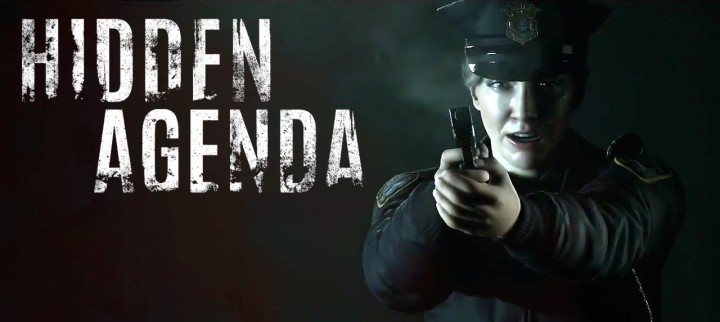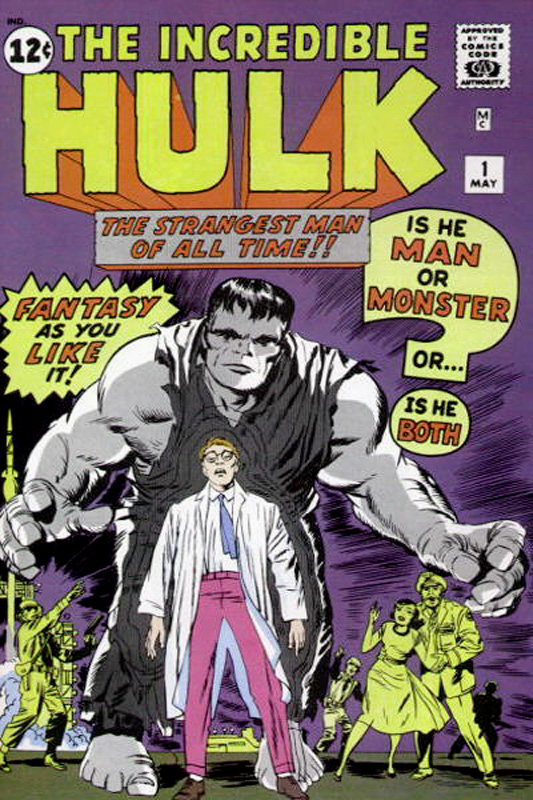Though there have been some great strides in the presentation of empowered female characters in videogames, developers still have a long way to go. In a recent dialogue with Samantha Blackmon and Alisha Karabinus about female characters who fall short of their potential, we found ourselves asking why narratives and game play build women up only to let them fall back down or regress later on in the game. It frustrates me to no end when a strong female character steps aside to allow the male protagonist a moment that should have belonged to her. For me, Bioshock Infinite‘s Elizabeth is a character that often falls short of her potential.
There’s a lot to unpack when exploring the presentation of Elizabeth’s empowerment because she treads a fine line between walking inventory bag and a woman that exists for Booker’s benefit and character development. Elizabeth delivers some terrific monologues and lines throughout the length of the game but her power and agency are cheapened by the game play and moments in the narrative. Instead of taking part in the combat and fighting alongside Booker, she’s there to provide him with useful items like med kits and additional ammo. She deserves to be more than just a tool for the player or a highly praised AI. Even during the course of the narrative, Elizabeth is often stopped short from reaching her full potential and claiming her agency. But before swan diving into a deep and thorough analysis of Elizabeth’s role in the third installment, I’m going to briefly allow my love and passion for this game to bleed through.
 The amount of effort that went into crafting this game is incredible. Between the creative world and the complex narrative, I’m floored not just by Bioshock Infinite but by the Bioshock franchise as a whole. It’s a great example of games as high level art and not mindless entertainment. However, much as I love the overall franchise and Bioshock Infinite‘s abstract ending, the developers can do better in terms of including more progressive portrayals of female characters.
The amount of effort that went into crafting this game is incredible. Between the creative world and the complex narrative, I’m floored not just by Bioshock Infinite but by the Bioshock franchise as a whole. It’s a great example of games as high level art and not mindless entertainment. However, much as I love the overall franchise and Bioshock Infinite‘s abstract ending, the developers can do better in terms of including more progressive portrayals of female characters.
In an earlier demo of the game, Elizabeth takes a more of an active role in combat. Instead of staying out of the way and occasionally throwing helpful items at Booker, she volunteers an idea and isn’t stopped from executing it. Elizabeth creates a ball of heated metal scraps for Booker to propel at the barricade and though she physically suffers from this feat, she’s still an active participant in combat. I expected Elizabeth and Booker to combine their attack powers and work more as a team. When I played the finalized version of the game, I was disappointed by Elizabeth’s role in combat because I felt as though she regressed to a supportive role. Is that fair? Is it a cheap way to go?
 In thinking more about early demos or footage, the older looking Ellie model from The Last of Us serves as another example of a female character falling short of her potential. Though child characters can be just as powerful and interesting as adult characters, in the aforementioned conversation, Sam revealed she believed Ellie was going to be the central character. I experienced a similar response because Ellie was often in the forefront of every image. The very idea of an early demo or the release of experimental footage raises a couple of thought provoking questions. Why was I duped? Why didn’t the developers stick to their guns and go with the organic flow? Why do we cater to male characters by shifting the power and narrative? I’m unable to answer the last two questions but I’ve been duped several times by demos or early depictions games. Whether it’s The Last of Us or Bioshock Infinite, I was let down by the alterations in the finalized versions.
In thinking more about early demos or footage, the older looking Ellie model from The Last of Us serves as another example of a female character falling short of her potential. Though child characters can be just as powerful and interesting as adult characters, in the aforementioned conversation, Sam revealed she believed Ellie was going to be the central character. I experienced a similar response because Ellie was often in the forefront of every image. The very idea of an early demo or the release of experimental footage raises a couple of thought provoking questions. Why was I duped? Why didn’t the developers stick to their guns and go with the organic flow? Why do we cater to male characters by shifting the power and narrative? I’m unable to answer the last two questions but I’ve been duped several times by demos or early depictions games. Whether it’s The Last of Us or Bioshock Infinite, I was let down by the alterations in the finalized versions.
The player finally gets to play as Elizabeth in episode two of Burial at Sea, and while I’m glad the player gets the chance to operate as a female character in Rapture, I often wonder why this option exists in downloadable content and not in a full feature game. Where’s Elizabeth’s game? Why are male characters often the main focus in full feature games? A full game that features a playable female character would do nothing but enrich and diversify the narrative. I want Elizabeth to take me through an entire game. I want to experience her experiences. The latest reboot of Tomb Raider is a great example of a game that’s led by a strong female character.
Elizabeth falls somewhere between damsel in distress and empowered female in the narrative. At the beginning of the game, she’s like Rapunzel in that she requires a legitimate rescuing from a tower-like structure. The structure, an enormous angel, can be visually read as a symbol of virginal purity or traditional femininity. Elizabeth’s conservative outfit further contributes to this image of purity, innocence, and traditional femininity. It’s also important to acknowledge her connection with Songbird, her avian guardian. Though Songbird is an artificial bird, the creature is still a representative of the natural world. Elizabeth’s connection with and rejection of Songbird can be interpreted as her former link to innocence and the shattering or severance of that link.
In further interrogating the Rapunzel comparison, Booker is like the devoted prince in that he climbs the tower to rescue Elizabeth but along the way he observes her through one sided mirrors. This element of voyeurism allows Booker to examine Elizabeth’s daily life and routine. He even catches a glimpse of her extraordinary power when she accidentally opens a tear, revealing a movie theater in France in the 1980’s. Between the charts that document her physical growth and the voyeuristic way in which Booker is able to study her, she has been reduced to a mere specimen that exists to be contained and prodded. Why is she being monitored? Why the control? Unfortunately, this control continues throughout the game.
 There’s a moment in which Elizabeth exhibits her power at its fullest. When she informs Booker of her desire to murder Comstock, she opens a tear that reveals an ominous tornado hurtling towards them and then asks who’s going to stop her from doing as she pleases. It’s an amazingly powerful moment that demonstrates Elizabeth’s reclaiming of her identity and agency. Instead of yielding to Elizabeth’s request and respecting her decision and power, Booker tells her that he’s going to kill Comstock for her. I can only speculate as to why Booker readily volunteers himself to play the role of murderer. Is he protecting Elizabeth? If so, what is he protecting her from? Elizabeth already has blood on her hands at this point in the story. Does Elizabeth have more of a right to kill the man who kept her locked up in a tower all of her life? Why did Booker blatantly ignore her request? Was he overcome by suppressed anger?
There’s a moment in which Elizabeth exhibits her power at its fullest. When she informs Booker of her desire to murder Comstock, she opens a tear that reveals an ominous tornado hurtling towards them and then asks who’s going to stop her from doing as she pleases. It’s an amazingly powerful moment that demonstrates Elizabeth’s reclaiming of her identity and agency. Instead of yielding to Elizabeth’s request and respecting her decision and power, Booker tells her that he’s going to kill Comstock for her. I can only speculate as to why Booker readily volunteers himself to play the role of murderer. Is he protecting Elizabeth? If so, what is he protecting her from? Elizabeth already has blood on her hands at this point in the story. Does Elizabeth have more of a right to kill the man who kept her locked up in a tower all of her life? Why did Booker blatantly ignore her request? Was he overcome by suppressed anger?
 Elizabeth undergoes a transformation after she commits her first murder. When she stabs Daisy Fitzroy with a pair of scissors, an act that can be seen as a kind of sexual penetration, she commits this crime to save a child who’s being threatened. This act of violence casts her in the role of protector or mother figure. When she reemerges into the scene that takes place on the zeppelin-esque ship, she ditches her conservative outfit for a sexy corset and catching blue skirt. She also cuts her hair and throws her girlish ponytail on the floor. What’s being said or suggested here? Is she more empowered after being cast in the role of protector or mother figure? Was the killing of Daisy Fitzroy a metaphorical sexual encounter? Are women only empowered after discovering their maternal instincts or experiencing a kind of sexual awakening?
Elizabeth undergoes a transformation after she commits her first murder. When she stabs Daisy Fitzroy with a pair of scissors, an act that can be seen as a kind of sexual penetration, she commits this crime to save a child who’s being threatened. This act of violence casts her in the role of protector or mother figure. When she reemerges into the scene that takes place on the zeppelin-esque ship, she ditches her conservative outfit for a sexy corset and catching blue skirt. She also cuts her hair and throws her girlish ponytail on the floor. What’s being said or suggested here? Is she more empowered after being cast in the role of protector or mother figure? Was the killing of Daisy Fitzroy a metaphorical sexual encounter? Are women only empowered after discovering their maternal instincts or experiencing a kind of sexual awakening?
Lastly, Elizabeth’s power isn’t her own. Though she later claims this power for herself, she possesses this ability because of Booker’s mistake. In one of many realities, Booker more or less sells off his infant daughter (Elizabeth) as a way to rid himself of his mounting debt. After losing a portion of her pinky finger in one reality, she’s able to open tears because she technically exists in two alternate realities. Has Booker given her this power?
The narrative and game play fail to align for me. How can a self-actualized woman who’s capable of opening multiple realities be used as an inventory bag in combat? Though she’s later able to open different realities in combat, these small areas or “patches” are used primarily to restore Booker’s ammo and health. Once again, Elizabeth is there for Booker’s benefit and not her own. When I first watched the ten minute demo (linked above) on YouTube, I was misled because I was under the impression that Elizabeth was more of an active participant in combat. Isn’t she more than just her AI?
Though Booker’s a fascinating character and I have nothing but deep admiration for his talented voice actor, I want to see Elizabeth stand on her own two feet and take this game for her own. I’m tired of games that simply dance around a female character’s potential and fail to explore it or execute it in full. I no longer want to see female characters in supportive roles or roles that limit them in some way. It’s 2015 and I think gamers are more than ready for strong female leads in full feature games.





7 thoughts on “Empowered Female Characters Who Fall Short of Their Potential”
I think the problem is a playability issue. Both Elizabeth and Ellie have various gameplay aspects which create a problem to your desire for the combat to change in their particular game. In order for Elizabeth to become more active in the combat, she would have to become vulnerable to attack. This would put Booker even more into the role of protector and ultimately ruin both the gameplay and the agency of Elizabeth. The player would be more focused on Elizabeth not dying (so as to not have to replay the level) than on anything to do with Elizabeth’s agency or plot. Furthermore, by not addressing the plot issues that are brought up in Burial at Sea Part II, the chance to view the entirety of the Bioshock world as being created through Elizabeth’s actions complicates the notion of a lack of agency within the world. Elizabeth is the one who sets things in motion in Bioshock I. I agree we need more female protagonists (particularly of the non-maternal type) who are actually the main actors in games, but I don’t see how the changes you suggest would have actually improved Bioshock: Infinite nor Elizabeth’s character.
Hi Chris,
Thanks for commenting.
I think the idea of what’s “better” is inherently subjective. These changes would enrich my own experience but I’m unable to speak for others. We’re all different in regards to what we look for or need in games.
I agree that we need more non-maternal female protagonists but when or where? If not this time, then what time? The female protagonist as a maternal type is common in games and in other mediums as well. The maternal thing frequently falls into traditional ideas about gender and often times that means casting the women as mother figures or men as protectors of women.
Best,
Ashley
Sometimes being stabbed to death with a pair of scissors is just a bloody murder. No need to get all Freudian on us. Constantly throughout the game Elizabeth is challenging Booker’s value of human life and how casually and quickly he kills. It’s not just an indictment of the character but of games, humanity and you, the player. There are so many times that as a player you lose yourself in the combat that I enjoyed her wide eyed horror at the monster that is her companion. The revelation of just who Booker is only cements that. Elizabeth is strong in a way that has nothing to do with her ability to murder people with dimension tearing super powers. She’s brilliant, adaptable, resilient, charismatic, aware and capable. I’m sorry if you were disappointed by some sort of perceived sex innuendo. I was too busy being surprised by Elizabeth taking the first steps down a slippery slope of justified violence to think of penis metaphors. Thanks for sharing that viewpoint though.
The thing about interpretation is that it’s just that. It’s not the definitive statement on the game and it certainly isn’t something you should find personally offensive. Someone’s interpretation doesn’t change the game you played, you know? If you want to discuss it, even argue it, that’s great. But is that what you were looking to accomplish here? It doesn’t seem so. Seems like you disagreed, and particularly vehemently with one point, but instead of engaging, you lashed out dismissively.
Do you want to discuss something? It seems you have a read on the game that’s fascinating, but can you engage without being patronizing?
Hi Frank,
Elizabeth’s response to/relationship with death is fascinating. Your interpretation of Elizabeth’s strength is valid but it’s important to be open to other meanings too. No two experiences are the same, which is awesome.
In regards to my analytical take on the stabbing of Daisy Fitzroy, let me see if I can explore it a bit. Maybe we can get a dialogue going. There’s a lot of penetrative acts in the Bioshock franchise. Whether it’s a little sister collecting ADAM with her extraction needle or Elizabeth stabbing Daisy Fitzroy with a pair of scissors, I often see the act of penetration as a kind of sexual experience. Penetration is (usually) read as a masculinized sex act and that doesn’t line up with being maternal. The experience she has with Daisy Fitzroy is no doubt intimate (close quarters, a poorly lit space) but I think there’s still more to unpack and explore. Instead of being cast as a maternal figure, maybe she becomes less feminine (shedding of the ponytail/femininity)? This gives us something to consider for next time.
Best,
Ashley
To me the penetration is only one side of the coin. Bioshock series is often a game about boundaries and the crossing of boundaries. Metamorphosis and seeking transformation. It’s about being inside something and wanting out or being outside something and wanting in. The lighthouse is a good example. One person might see it as a phallic symbol, another as the symbol of navigation and safety. Once you leave the lighthouse your path is anything but sure and safe. You desperately wanted inside something that was blocked away and for a good portion of the game all you want to do is escape again. The Adam collects inside people seeking to become something else to the point that all they can do is continue to change pointlessly and ravenously until they die a violent death and all that potential is recovered to start the whole mad cycle again. Rapture changes you the moment you enter it. Insidiously and relentlessly. Columbia is like that.. Except this time for the mind. Less hideous mutations, more ideology gone completely off the rails.
Forgot to add in reply touching on that point, Elizabeth to me is the ultimate expression of transformation in the Bioshock universe as she literally starts at one fixed point and expands out into infinity.